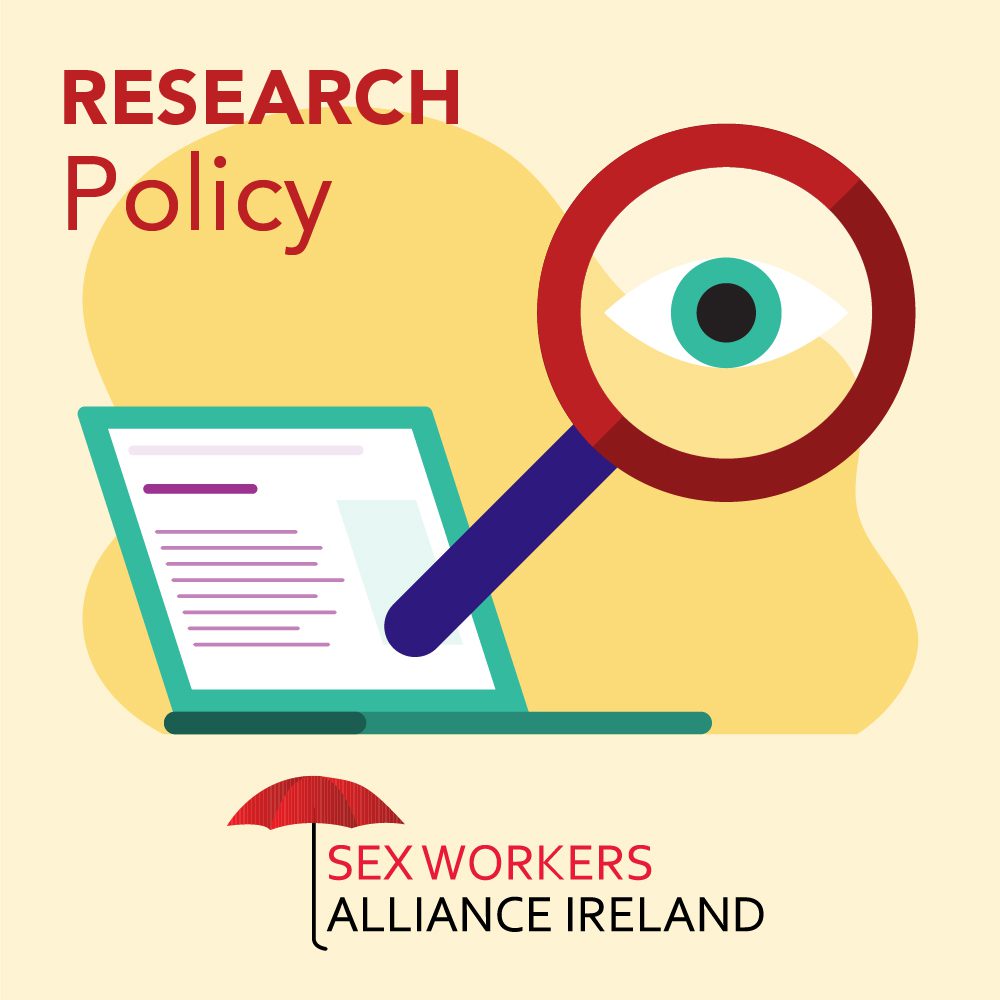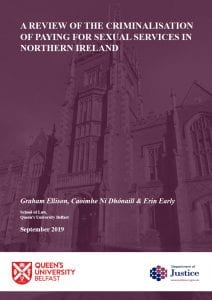
SWAI is frequently contacted by academics, organisations, and individual researchers within and outside of Ireland to support their research by identifying participants, promoting research, facilitating peer interviews, and participating in advisory panels.
We are aware of the sex worker community being over-researched by non-peers without outcomes that improve sex workers’ lives. SWAI is concerned about the fatigue and potential for increased poor mental health outcomes for sex workers participating in interviews, with little or no appropriate follow-up offered by professionals.
We recognise that there may be occasional variations to the rule, however where there is capacity, we shall be prioritising our labour/knowledge/network access towards research requests that are conducted by sex worker researchers and concerning topics which support the objectives of a) improving the working and living conditions of sex workers, b) progressing our work to eliminate stigma and discrimination, and c) increasing access to support services
If you would like to contact us regarding your research, please complete our criteria of assessment for requests of SWAI engagement with research:
- Do you have lived experience in the sex industry (all responses will be treated with confidentiality, more details below)?
- Have you already secured funding for your research? If yes, please specify.
- What are the needs of the research?
- Do you want SWAI to promote?
- Do you want SWAI to recruit participants? If yes, what is the agreed participant payment?
- Do you want SWAI to recruit peer researchers? If yes, what is the reimbursement of labour to SWAI?
- Do you want SWAI staff to participate in advisory panels? If yes, how many hours will be required?
- Other requirements, please detail.
- How does the research topic align with SWAI’s values and Mission Statement?
All applications received will be confidential in accordance with our policy of not ‘outing’ sex workers. We will respond to your request based on the information you have provided and our availability. Please note that our staff work part-time. It is recommended that you do not rely solely on SWAI participation as we have very limited capacity to approve requests.

